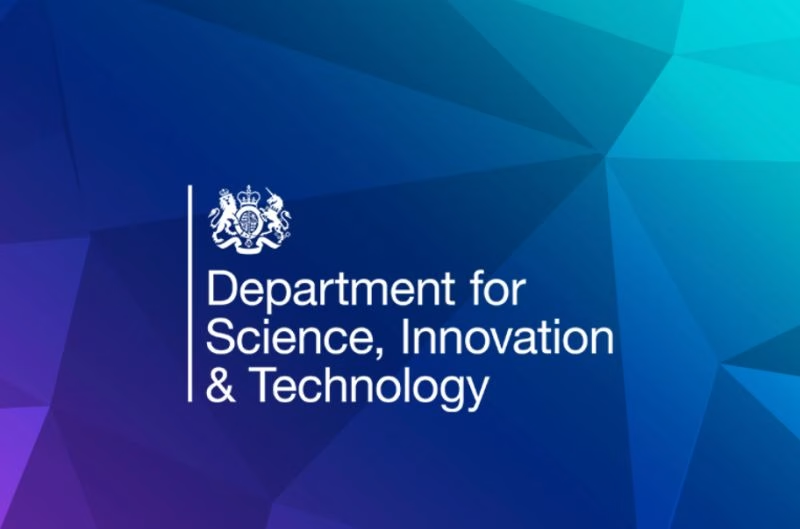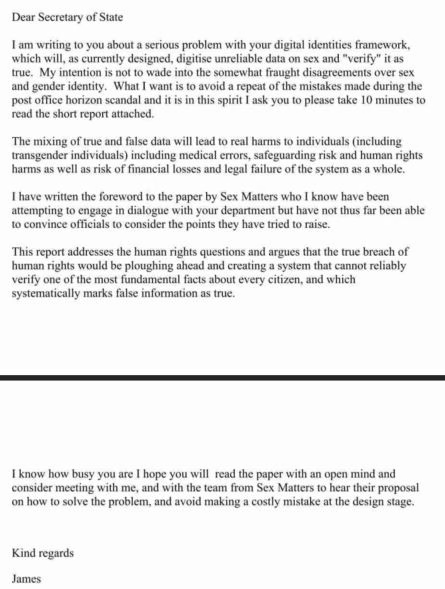
Our FOI reveals a year of correspondence showing how ministers and senior officials at the Department for Science, Innovation & Technology (DSIT) met repeatedly with the anti-rights group Sex Matters while shaping the government’s new digital identities framework, the system that will underpin how the state recognises people across passports, tax, health and more.
The trail starts with emails from 2024 leading to a meeting on 16 January 2025, followed by another on 9 April 2025. Across those months, Sex Matters lobbied hard to have vast government datasets declared “unreliable” and stripped from the system’s sex and gender fields. The datasets they targeted were not obscure; they are the pillars of UK public administration: HM Passport Office, DVLA, NHS and HMRC.
Emails show the group trying to bolster their pitch, because they were not being heard, by pulling in political weight. In March 2025, they lined up Lord Arbuthnot, hoping he would attend the April meeting. Even when his attendance looked uncertain, they pushed for the meeting to go ahead regardless. When Arbuthnot did engage, he sent the Secretary of State a personal letter warning that the framework would “digitise unreliable data on sex and ‘verify’ it as true,” likening the risks to the ‘Post Office Horizon scandal’. He claimed this could cause medical errors, safeguarding failures, human rights harms, and even the collapse of the system, and urged ministers to read the attached Sex Matters report “with an open mind”.

The lobbying didn’t stop there. On 12 May 2025, in the middle of a Data Bill debate, Maya Forstater emailed Lord Vallance to correct what she called a misunderstanding of the group’s position. “Please note this is NOT our position,” she wrote in bold, before spelling out their demand: a definition of sex that “excludes unreliable datasets” – including those from HM Passport Office, DVLA, NHS and HMRC – because those contain gender markers.
Then, the crucial breakthrough. In a 28 July 2025 letter, the Secretary of State confirmed that a powerful cross-government forum – the Domain Expert Group on the Person Entity – had been established to set data standards across departments. It includes ONS, HMRC, Home Office, DWP, the Office for Digital Identities and Attributes, MHCLG and the Police Digital Service. He told Sex Matters how to make representations to this group, even providing the name of the secretariat (redacted in the FOI release), and wrote: “I value your insight… I want to make sure your voice has been heard as we move into next steps.”.
This isn’t a minor technical squabble. If these demands are adopted, Britain’s digital ID risks being built on fragmented data, with operational blind spots and safeguarding gaps baked in. Sex Matters’ Horizon scandal comparison is a calculated PR hook, but here it’s being used to push through a redefinition of “truth” in state records that would erase entire datasets from core identity checks.
Trans Actual have also contacted DSIT and Secretary of State Peter Kyle to raise concerns over the digital ID framework, but has not been granted anything like the access enjoyed by Sex Matters. Most of their letters were handled not by the Secretary of State himself but by Feryal Clark, the Parliamentary Under-Secretary for DSIT, and unlike Sex Matters, they were never offered a route into the influential Domain Expert Group on the Person Entity, and have ignored multiple requests for a meeting.
We have filed FOI requests for the minutes of these meetings and for passages in the released material that were redacted as “Out of scope”. Whatever is in them, the public deserves to see the full picture of how anti-rights lobbyists secured such privileged access at the heart of a system that will govern everyone’s legal identity.
Full FOI Files: https://drive.google.com/drive/folders/1Jfz_tBKzWwRUAGqAr49LRgIQQ9TK2KeZ?usp=sharing
